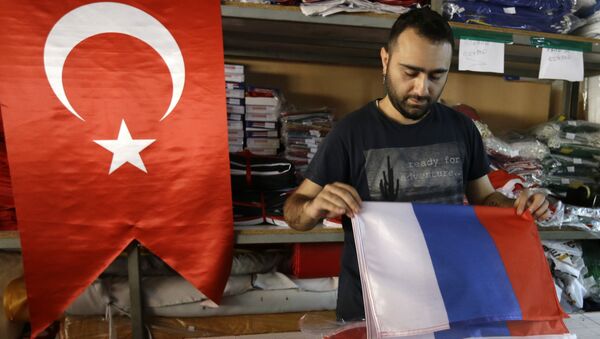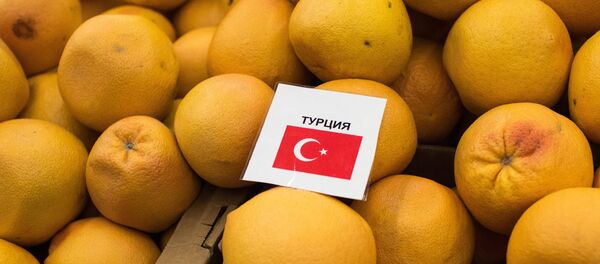MOSCOW (Sputnik) — Russia's imports from Turkey increased over 40 percent in first two months of 2017 compared to the same period last year after the partial lifting of Russia's food embargo on Turkey, the Russian Economic Development Ministry said.
"In January and February 2017, Russian-Turkish trade grew 2.1 percent year-on-year and came to $2.48 billion, including $2.13 billion in exports (2.3 percent fall) and $350.4 million in imports (40.5 percent increase)," the ministry said in a memo, citing customs data.
The rise in imports was driven mainly by the partial lifting of Russia's embargo on certain Turkish food products last year, according to the document.
The memo comes ahead of Wednesday's meeting between Russian President Vladimir Putin and his Turkish counterpart Recep Tayyip Erdogan in Sochi. The two leaders are expected to discuss the entire range of Russian-Turkish relations, as well as a number of international and regional issues, such as countering terrorism and resolving the Syrian crisis. Russian Minister of Economic Development Maxim Oreshkin will take part in the meeting.
Russia's food embargo was introduced on January 1, 2016 in response to the 2015 downing of a Russian aircraft by Turkey over Syria. In October 2016, the Russian embargo on Turkish stone fruits and citrus fruits was lifted. In March, the government exempted fresh and refrigerated onion and shallot, fresh and refrigerated broccoli and cauliflower along with several other products from the ban. The imports of tomatoes, cucumbers, apples, pears, grapes, strawberries and most poultry products are still banned.



